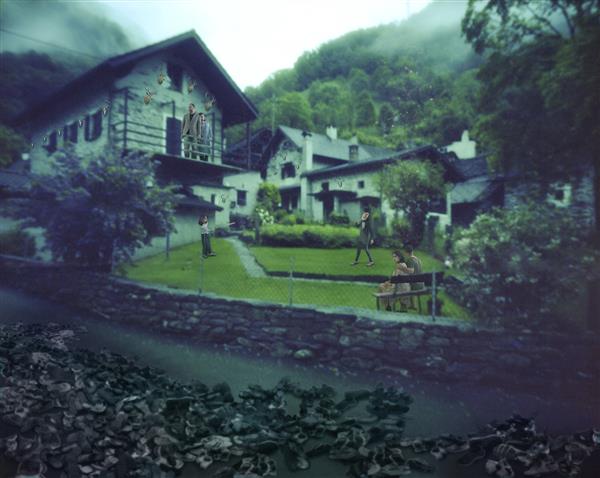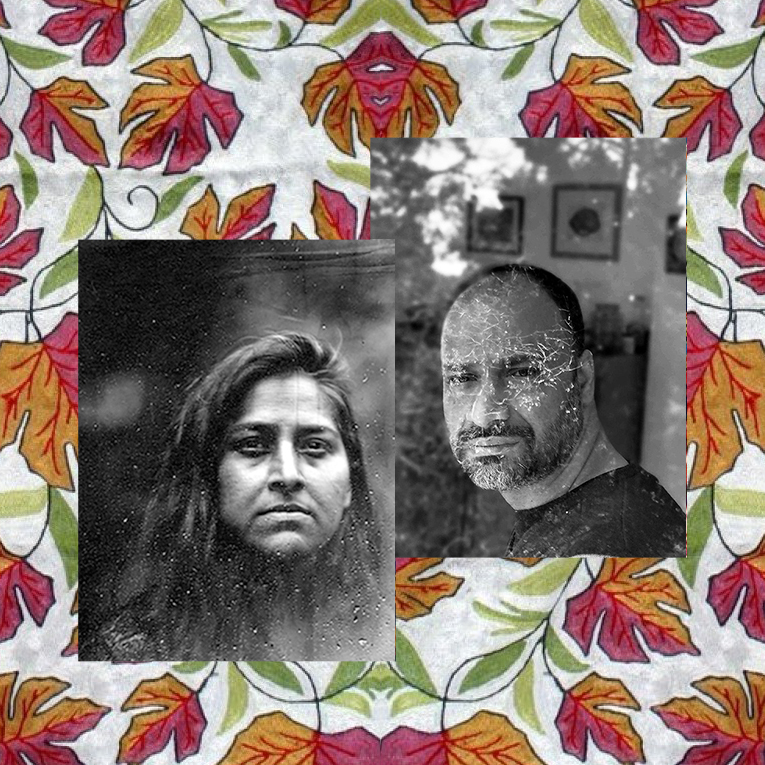
‘The Game, The Hangul and The Missing Funeral’ from the series ‘Tales from Kashmir’. Anita Khemka & Imran Kokiloo/ PHOTOINK
Sarika Sharma
ONE of them is an outsider. The other left Kashmir as a teenager. As partners, they found themselves stranded during a two-week curfew in the Valley. As photographers, they have been exploring it ever since. The two — Anita Khemka and Imran Kikloo — have been awarded the 2022 Umrao Singh Sher-Gil Grant for Photography for their project ‘Tales of Kashmir’. Established in 2015, this grant is awarded to ‘staged’ or ‘constructed’ image and documentary photography.

“Kashmir is central to our identity and the issues in Kashmir are complex. Our collaboration and first work on Kashmir started in 2016 after an unpleasant experience while visiting home. What came out then was very direct and confrontational. This work acted as an entry into a deeper introspection on the issues there and the connections it made with identity, suffering, and othering; individuals versus the collective and the shades in between,” says the duo.
Anita says that as a result of that curfew situation, she immediately realised that what Imran considered normal and usual was not normal at all. “I think I jolted him out of that feeling of normalcy and steered him on his own journey of self-discovery. I think I hold that ‘outsider’ perspective and question all status quo and, in this sense, have a very critical role in this partnership,” she says.
This led to a series of projects around Kashmir — individually and together. ‘Tales of Kashmir’ follows this long-term engagement with the Kashmiri identity, its nuances, and the questions it poses through the ongoing conflict. It is a retelling of tales from Kashmir through photographs. And these tales, Anita and Imran say, could include folk tales, oral traditions, modern writings as well as current observations from their point of view.
The grant requires them to complete the proposed project in the next 18 months. This will involve research, creating pinhole images and a storyboard for each pinhole image, and then realising these stories by recreating them in a studio space. “We will then insert these stories in the selected pinhole images.”
They have already made some pinhole images of the Swiss landscape — as Kashmir is often referred to as the ‘Switzerland of India’ — while on an artist residency supported by Pro Helvetia. “These pinholes shall work as a part of our mise-en-scene, upon which we will add the characters of our stories. These characters will be photographed in the studio and will be introduced to the scene during post-production,” says Anita. And since the constructed image does not have a specific grammar, they find it a liberating medium. For them, Vivan Sundaram is a starting point when it comes to the constructed image in India through his work ‘Retake of Amrita’, wherein the artist had begun manipulating photos of his aunt Amrita Sher-Gil around two decades ago.
But what is it that they intend to achieve by juxtaposing a tale and a family against a pinhole canvas? “These stories are our readings of the social and political situation in Kashmir as characters as well as observers. As individuals with a Kashmiri identity, we often think about the nature of our connection with the spatial space inhabited by our ancestors and us. What does it mean to belong to a certain ethnic group and what part do we play in nurturing this connection and how deep does this connection go? What become the truths of this identity and how are these truths recorded for posterity? Our understanding of folklore as being the most honest, truthful, and critical commentary of a social space that digs deeper into the psyche of the collective is the starting point of our work here. Hence, we are looking at a historical understanding of our systems (social, value, political) as a collective, along with a critical overture from us (meaning our family) in each tale with the hope to open it up for discourse,” says the duo.
An English language graduate, gender, sexuality, HIV and mental health define the past 25 years of Anita’s career. Her series on the hijras introduced her to Laxmi Narayan Tripathi, a transgender/hijra rights activist, who is a prominent part of her work. Imran had a corporate job before 2016 and started photography only in 2017 in collaboration with Anita. Their first series titled ‘Kashmir: Pellet Identity’ was exhibited at FotoFest Houston (2018) and a print is in the permanent collection of the Museum of Fine Arts, Houston.
Being partners in personal and professional lives makes it easy for them to both parent and work. “For our children, we are stay-at-home parents as we work from home. As a result, we are available to them at all times. We try to ensure they travel with us as collaborators for most of the work that we make on Kashmir. So, in a sense, they are our partners as well and that makes parenting easy. In photography, Anita and I have different gazes and that helps. In the production of our work, we are already discussing a diverse view and the end product is synthetic of these values. I think that is one step up already,” says Imran.
The grant
The Umrao Singh Sher-Gil Grant for Photography is awarded for artists and photographers to realise and complete their submitted project. The jury comprising Azu Nwagbogu, founder and director of African Artists’ Foundation, visual artist Pushpamala N and multimedia artist Ranbir Kaleka, unanimously voted in favour of Anita Khemka and Imran Kokiloo for their deliberate and personal interpretation of the multiple subjective realities of life in Kashmir in ‘Tales from Kashmir’.
“The jury was impressed with their location-specific approach in constructing narratives as they say ‘from looking at ourselves as Kashmiris through others to now looking at Kashmir through us as a family’.”
Join Whatsapp Channel of The Tribune for latest updates.



























